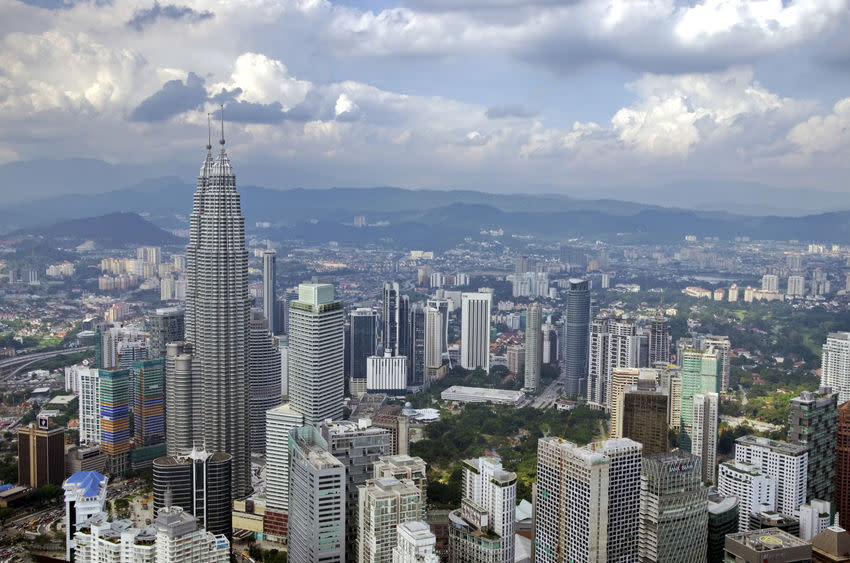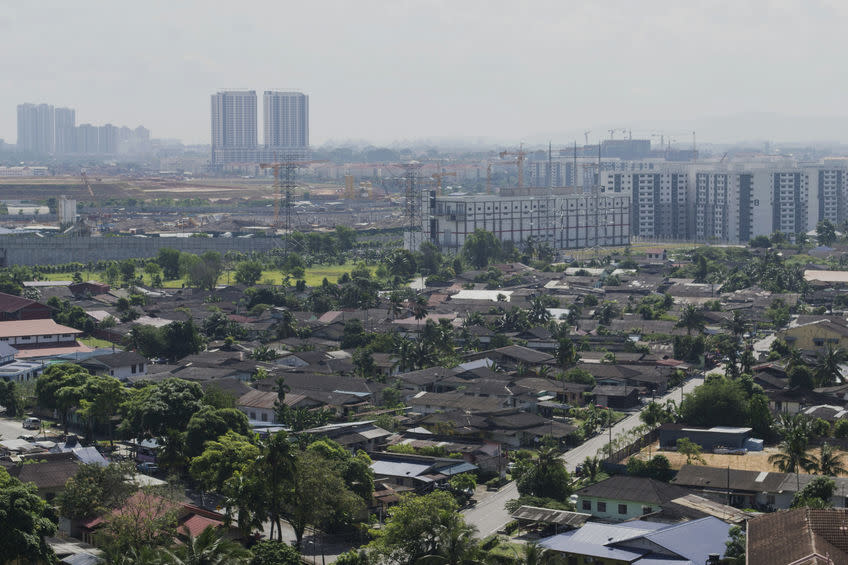Malaysia seeks new proposals for Kuala Lumpur-Singapore HSR project, Property legal fees up and more

10th July – 17th July
The Malaysian government is seeking proposals from local and international firms for the development of the high-speed rail (HSR) project between Kuala Lumpur and Singapore.
Meanwhile, legal fees for conveyancing transactions within Peninsular Malaysia has increased, following a revision in the Solicitors’ Remuneration Order (SRO) to allow lawyers to cope with rising operating costs.
1. Malaysia seeks new proposals for Kuala Lumpur-Singapore HSR project
The Malaysian government is seeking proposals from local and international firms for the development of the high-speed rail (HSR) project between Kuala Lumpur and Singapore.
It has tasked MyHSR Corporation Sdn Bhd (MyHSR Corp) to initiate a request for information (RFI) exercise, allowing the government to assess the industry’s interest as well as the ability to fully fund the rail project, reported The Star.
Stretching across six states in Malaysia before crossing Tebrau Strait into Jurong East in Singapore, the 350km project is expected to reduce travel time from Bandar Malaysia to Jurong East to just 90 minutes.
Malaysia and Singapore initially signed the memorandum of understanding for the HSR project on 16 July 2016. However, the project was cancelled in 2021, which saw Malaysia paying Singapore RM320 million in compensation.
“MyHSR Corp remains committed in supporting the government to identify the most effective solution to revive the KL-SG HSR project,” said MyHSR Corp CEO Datuk Mohd Nur Ismal Kamal.
“Globally, developments of HSR have proven to be growth engines, bringing about catalytic development and growth as well as multiplier effects that benefit all walks of life,” he added.
2. Property legal fees up
Legal fees for conveyancing transactions within Peninsular Malaysia has increased, following a revision in the Solicitors’ Remuneration Order (RSO) to allow lawyers to cope with rising operating costs.
“The increase in costs has been made particularly acute by the COVID-19 pandemic and its impact on the economy. Lawyers’ operating costs have also risen significantly in the last few years,” said senior lawyer Datuk Roger Tan, who represented the Malaysian Bar at the Solicitors Costs Committee (SCC).
Based on the latest SRO 2023, the changes will affect transactions that involve non-contentious matters like the sale and acquisition of movable and immovable properties, tenancies and financing, reported The Star.
Nonetheless, a 50% discount will be granted to property transactions from licensed developers, depending on the value.
With this, the conveyancing fees for property valued at RM200,000 now stands at RM2,500, RM6,250 for those valued at RM500,000 and RM12,250 for those valued at RM1.1 million.
For properties valued at RM1.5 million and RM7.5 million, the conveyancing fees would be RM16,250 and RM76,250, respectively.
The fees previously ranged from RM2,000 to RM48,000.
3. Property auction listings up 20% due to OPR hikes
Malaysia’s property auction market saw listings increase by up to 20% due to five overnight policy rate (OPR) increases since May 2022, which resulted to many borrowers struggling to make their repayments.
Ishak Ismail, President of Persatuan Perunding Hartanah Muslim Malaysia (Peham), said banks have started obtaining public auction orders from land offices or courts since November 2022, reported Free Malaysia Today citing Utusan Malaysia.
According to him, banks were left with no choice but to resort to public auctions as borrowers were no longer able to make repayments.
This comes as many of the borrowers had lost their jobs after several companies ceased operations during the lockdowns. The OPR hikes only aggravated their situation.
Between May and November 2022, Bank Negara Malaysia (BNM) raised the OPR by a total of 100 basis points (bps), before hitting the pause button in January and March 2023.
It once again raised the OPR by 25 bps in May, bringing the OPR from 2.75% to 3%.
Earlier this month, this central bank announced that it will keep the OPR at 3%.
4. 31 ‘sick’ housing projects rehabilitated in May
Deputy Local Government Minister Akmal Nasrullah Mohd Nasir said 31 sick private residential projects, involving 3,299 homes, were rehabilitated between 1 and 31 May.
Of these, 28 projects received their Certificate of Completion and Compliance (CCC), while the rest were back on their construction schedule, reported Bernama.
Overall, 149 sick private residential projects, comprising 17,436 housing units, had been rehabilitated since the establishment of the action committee for sick and abandoned housing projects in December 2022.
“This committee is always ready to be a facilitator in resolving matters with the ministry (Ministry of Local Government Development) including related agencies for the purpose of speeding up the process of completion and issuance of the CCC,” said Akmal Nasrullah.
He revealed that the number of delayed projects had declined to 124 as of 31 May, from 141 previously.
5. HSR to help Johor Bahru reach its potential
Baggage from the past, which include occasional squabbles over water agreements, is keeping Johor Bahru from reaching its full potential, said KGV International Property Consultants (M) Sdn Bhd Executive Director Samuel Tan.
This comes even as it has the inherent DNA to complement Singapore.
He noted that Malaysia’s inconsistent policies also discourage investors from making long-term commitments amid concerns of policy reversals, much like the on-off status implementation of the high-speed rail (HSR) project between Kuala Lumpur and Singapore, reported the New Straits Times.
“We should build more linkages between JB and Singapore. The HSR, more bridges, and ferry routes to different localities should be considered. This helps solve the traffic congestion problems at the current two causeways,” said Tan.
He revealed that Johoreans were excited when the bilateral agreement to build the HSR project was signed in 2016.
However, the project was suspended in 2018, before it was finally cancelled in 2021 – leaving Johoreans in shock.
MyHSR Corp recently called local and international firms to submit fresh proposals for the revival of the KL-SG HSR project.




